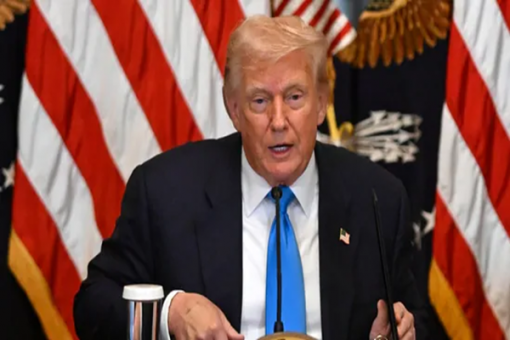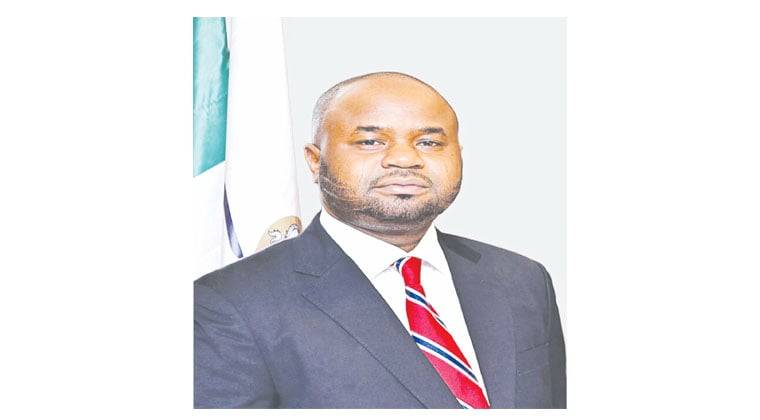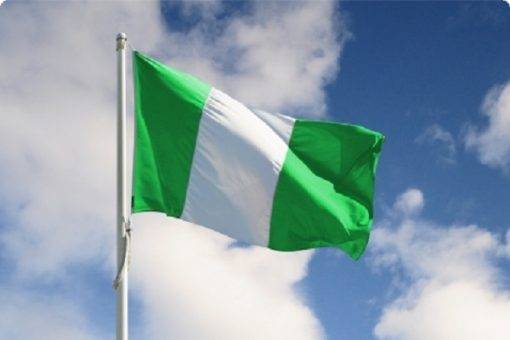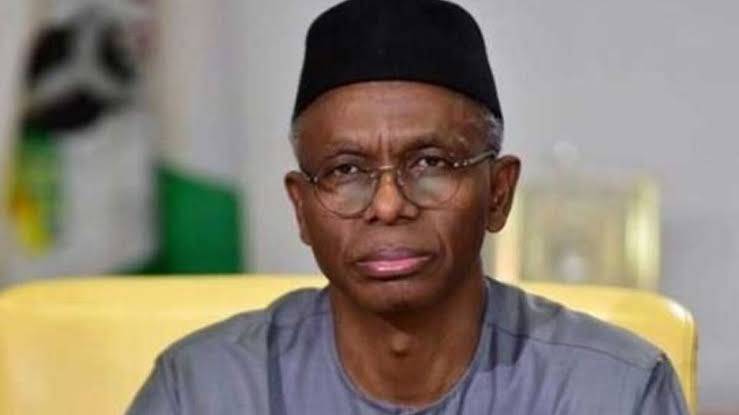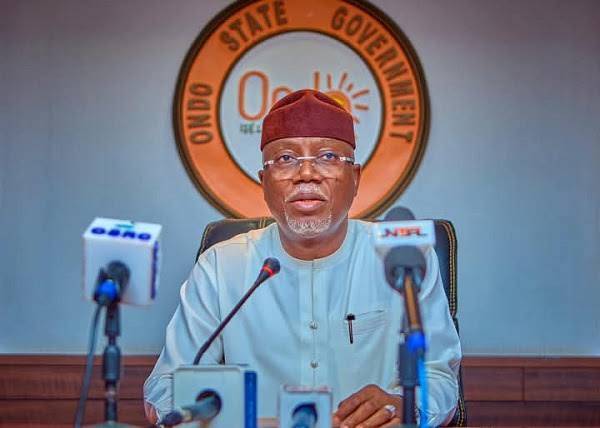By Segun Ayobolu
No less hypocritical and predicated on utter falsehood than the petition of the leader of the Indigenous Peoples of Biafra (IPOB), Mazi Nnamdi Kanu, to President Donald Trump, claiming to be the victim of Christian genocide in Nigeria and being illegally detained by the Nigerian authorities, was a protest letter submitted to the Embassy of the United States in Abuja, the European Union (EU) Mission and the Ministry of Justice by a faction of the Peoples Democratic Party (PDP). Acting under the aegis of the PDP Like-Mind Group, the protesting opposition party members appealed to the international community to help safeguard democracy in Nigeria and prevent the country from descending into a one-party state.
According to a news report in The Independent Newspaper, “Led by Mr Moses Aliu, the protesters carried placards urging global partners and the Ministry of Justice to act swiftly to protect Nigeria’s democracy and uphold the independence of the judiciary. They accused the ruling party of orchestrating a drift towards a one-party regime through intimidation of opposition figures. The protesters said their demonstration aimed to draw attention to rising corruption, political persecution and what they described as the capture of key state institutions. The protest also called on the judiciary and law enforcement agencies to stand firm in defending democratic rights and the rule of law.”
Coming shortly after the US President, Donald Trump, had threatened sanctions and possible military intervention in Nigeria to check what he described as ‘Christian genocide’, the factional PDP protest was a subtle support for external forcible intrusion in the country’s internal political structures and processes. The protracted factional crises that have hobbled the former self-proclaimed largest party in Africa, purportedly destined to rule for 60 years, are attributed to deliberate machinations of the ruling All Progressives Congress (APC) and the President Bola Tinubu administration to annihilate opposition parties and impose a one-party dictatorship in Nigeria.
Unfortunately, this kind of deliberately misleading rhetoric may give opportunity to foreign elements bent on destabilising Nigeria for ulterior motives and hidden agendas to intervene directly or indirectly in our internal affairs, citing support for such disruptive intrusions within the country. If the government of a country with perhaps the most extensive and sophisticated intelligence network on earth could be misled into perceiving Nigeria’s multi-dimensional crises encompassing political, ethnic, religious, economic, climatic and environmental factors as a unidirectional Islamic terrorism against Christians, it is not impossible that misrepresentations of the country’s challenges could lure outsiders into misguided adventurism in Nigeria.
Now, what are the roots of the current crisis plaguing the PDP and which unfortunately continues to fester by the day? Can the internal ruptures and ripples within the former ruling party, which was in power at the centre for 16 years, be credibly and plausibly blamed on the Tinubu administration? The remote cause of the PDP imbroglio was the attempt under the presidency of General Olusegun Obasanjo (1999-2007) to destabilise and absorb opposition parties into the PDP and impose an essentially one-party-dominant system on the country. This was a period when elected office holders of the major opposition parties, the Alliance for Democracy (AD) and the All Nigeria Peoples Party (ANPP), routinely defected to the PDP in a bid to partake of ‘mainstream’ resource sharing at the centre.
The Chairman of the second largest opposition party in the country at the commencement of the fourth Republic in 1999, the All Nigeria Peoples Party (ANPP), the late Alhaji Mahmud Waziri, from Adamawa State, was subsequently appointed as Special Adviser to President Olusegun Obasanjo on inter-party relations. This was part of a process of systematic bleeding of the ANPP by the then-ruling PDP that rendered the former a shadow of itself before the 2003 elections. The defunct Alliance for Democracy (AD) was in control of the six states of the Southwest between 1999 and 2003. In the 2003 elections, the rampaging PDP Tsunami swept five of the Southwest states into the ruling party’s orbit with then-governor Bola Tinubu of Lagos State as the only one reelected on the platform of the AD in the region.
Even as the leadership and members of the AD were in a virtual state of mourning after the party’s questionable routing by the PDP in 2003, its national chairman, Alhaji Ahmed Abdulkadir, congratulated the ruling party on its electoral victory and was later appointed as Special Adviser to the President on Manufacturing and Private Sector in the Obasanjo administration. In an article in this space on August 1, 2009, titled ‘PDP as Noah’s Ark’, this column commented on the intensifying gale of defections to the PDP at that time.
As I put it in that piece, “As the rampaging elements of vengeful nature assail Nigerians on all sides, devaluing the quality of their lives, it is not surprising that more and more political office holders are dumping the political party platforms on which they rose to power and migrating to the safety of the Noah’s Ark that they perceive the PDP to be. Just as the biblical Ark protected Noah and his family from the fury of the flood that devastated sinful creation, the PDP is seen by the growing army of executive defectors as their eternal refuge and stronghold against political calamity. At least with the irascible Professor of travesty, Maurice Iwu, still inexplicably calling the shots at INEC, they can be guaranteed life tenures in the Ark of power irrespective of the will of the people.”
The piece continued, “Following in the footsteps of Governors Isa Yuguda of Bauchi State and Mahmud Shinkafi of Sokoto State, who had earlier shamelessly dumped their original party platforms, the ANPP, for the PDP, Governor Ikedi Ohakim of Imo State is the latest governor to jettison moral principles and dive headlong into the contemporary PDP Noah’s Ark built on deceit and fraud. Governor Ohakim demonstrated a stunning lack of grace and civility in so callously ditching the PPA that offered him a platform to contest the 2007 elections; an opportunity he was denied with arrogant impunity in the PDP. Today, Ohakim has opted to stab the PPA in the back by going back to his vomit”.
At the reception ceremony to welcome Ohakim to the PDP in Owerri, the late President Umaru Yar’Adua had declared exultantly, “Today is a great day for us in PDP. All the leadership of the party is here today to receive Governor Ohakim in our fold. You are welcome back to the PDP. Today is a day for prayers; today is a day to celebrate, and today is a day for songs”.
After the 2007 general elections, the PDP was in control of 31 of the 36 states in the country. Before the polls, President Obasanjo had described the elections as a ‘do or die’ affair for the then ruling party. Yet, no one accused the PDP of trying to foist a one-party system on the country despite President Yar’Adua’s admission after his controversial electoral triumph that the election which ushered him to power was deeply flawed.
After the 2003 elections, President Tinubu remained the only governor in the country on the platform of the AD. He was the butt of jokes by fellow governors and PDP leaders, especially that he would ultimately have no choice but to join the ruling party. Rather than being an attempt to convert Nigeria’s multi-party democracy into a one-party system, the pattern of opposition party leaders defecting to the ruling party, as currently happening, is an unfortunate, ingrained feature of Nigeria’s political culture, which has been prevalent ever before the emergence of the APC. To his credit, Tinubu did not join the bandwagon of defectors to the ruling party. Rather, he worked assiduously with other like-minded leaders to retrieve his party’s stolen electoral mandates through the judicial process and ultimately to form political parties that worked in coalition with other parties and forces to win political parties at the centre in 2015.
What is dispiriting about the letter of the IPOB leader to President Trump or the PDP’s petition to the US and the European Union seeking external intervention in our internal political and Judicial processes for reasons that lack logical or empirical validity is that it portrays our political class as being incapable of solving domestic challenges and in the process strengthening our socio-political institutions. Again, it legitimises the attempt by external powers to dictate how we run our affairs, thus engendering a feeling of psychological inadequacy and inferiority among Nigerians. This also obscures the fact that those we seek to be our redemptive political Messiahs also have their own structural, behavioural and institutional challenges despite having a headstart of hundreds of years over us in the practice of democracy.
Following the refusal of losers in the 2023 presidential elections to accept the outcome of the polls, for instance, the cerebral thinker and novelist, Chimamanda Adichie, wrote an open letter to former President Joe Biden not to recognise the outcome of the election. Actuated largely by ethnic considerations because of her support for Mr Peter Obi, an Igbo who came third in the polls, she conveniently forgot that Donald Trump had vehemently questioned the legitimacy of the election that produced Biden, claiming that it was brazenly rigged! It is the same mentality that informs calls by members of the political class who lose elections and their supporters for military intervention because they disagree with the outcome of polls and dislike the government in power. They forget that soldiers plan and execute coups essentially for their self-interest and will hardly stake their lives to hijack power unconstitutionally only to donate such power to a group of disgruntled opposition politicians. It is in the interest of mutinous soldiers to discredit the political class as a whole and democracy as a system of government.
When Alhaji Atiku Abubakar emerged as PDP presidential candidate for the 2023 elections, key stakeholders within the party, including the Group of five governors led by Barrister Nyesom Wike, urged him to allow the Chairmanship of the party to shift to the South for regional and zonal balance. He was adamant and arrogant in his refusal, thus laying the foundation for the defeat of the PDP in that election. Atiku did not win in any of the PDP states controlled by the PDP G5 governors. The opposition is going into the 2027 elections even more divided than they were in 2023. With the economic reforms of the Tinubu administration gradually beginning to yield fruit with bright prospects of impacting lives positively in the near future, it is tempting for many of them to long for foreign military intervention or a military coup to torpedo the entire political process out of loathing for the Tinubu administration.
If so, they will only shoot themselves in the foot. The only way to organise effectively to confront the APC in the next electoral cycle is for the opposition to get its act together, forge a more cohesive front and present the electorate with a credible alternative economic pathway, which they are yet to do up till now. As the notable journalist and lawyer, Seun Okinbaloye, of Channels Television (by no means a supporter of the Tinubu administration), so aptly put it, “This is the time for every Nigerian to come together and leave every kind of politics to stand together for Nigeria…An invasion of Nigeria is not in the favour of any Nigerian. If you look at Somalia, Egypt, Libya, and other nations invaded in the past by foreign forces, those countries are destabilised”.


